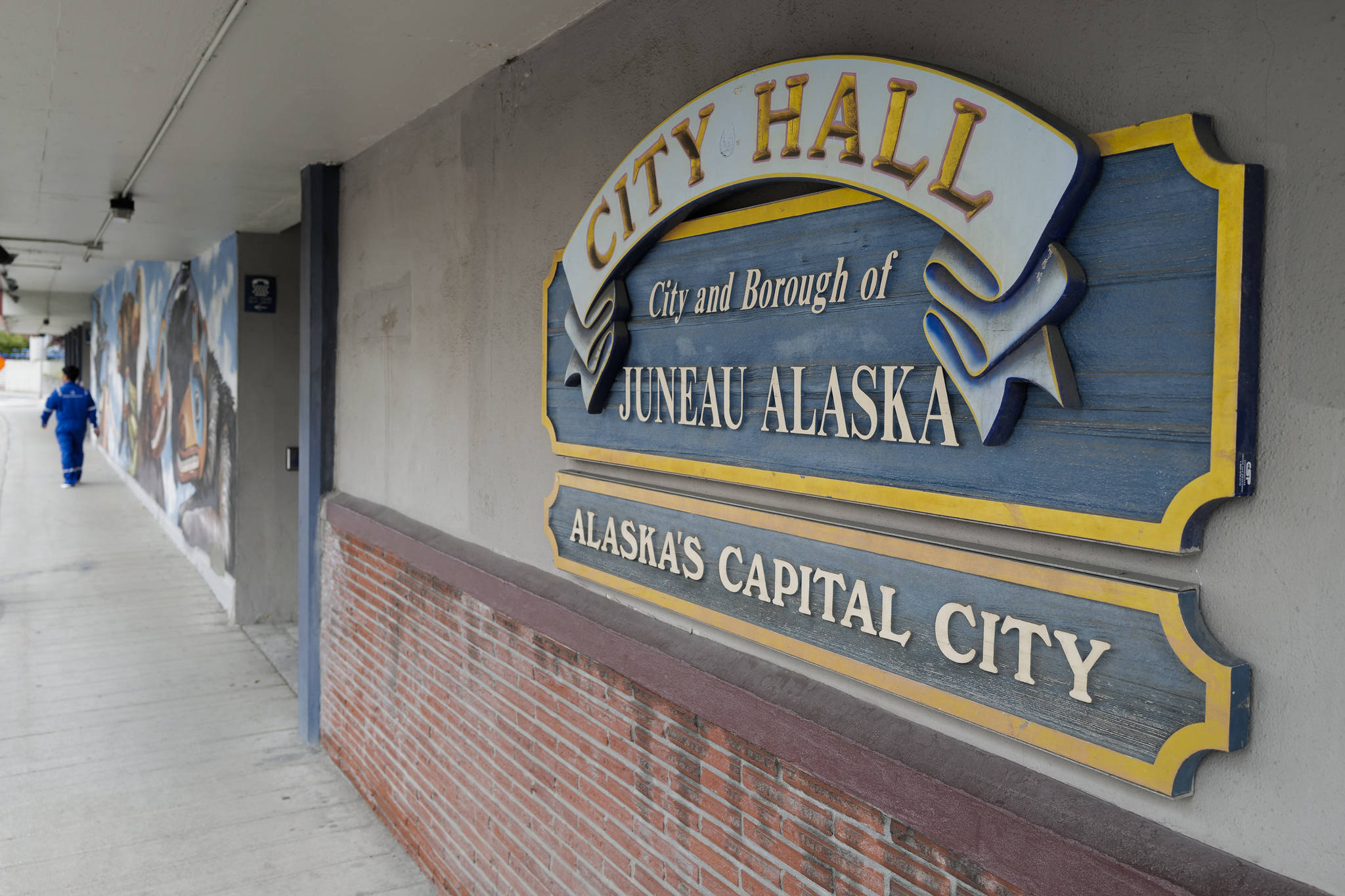Summary:
The big issue of the night was city ordinance 2019-33, which sought to bring the city’s criminal code more in line with the changes made at the state level in House Bill 49. That bill reversed many of the changes made under Senate Bill 91 in 2016.
Don Haberger from the Juneau Re-entry Coalition raised concerns that language in HB 49 was too vague. Haberger was concerned that the language in the city ordinance could be used to charge people who had not yet committed a crime. Furthermore he was concerned that some of the minimum sentencing would place undo burden on the people least able to afford it.
Several members of the Assembly put questions to Municipal Attorney Robert Palmer III, who said that it was never the intention of the city to place a burden on the public. He also said that his department would take into account the circumstances of the individuals it was bringing charges against.
The Assembly passed the ordinance, aligning the city’s criminal code with HB 49, but only after assurances from the city’s attorney that charges would not be overly punitive.
8:49 p.m.
Watt is answering questions about a grant from the Federal Emergency Management Agency which would update the city’s hazard maps, with a focus on landslide and avalanche zones around the downtown area.
The FEMA grant only covers the downtown area and Assembly members are asking if there are landslide or avalanche threats for other areas of the city.
Watt says that those areas are a concern to him and his department, but that the grant does not cover any other areas outside of the downtown region.
8:36 p.m.
Watt recommends allocating $35,000 for matching funds for a grant to create a number of installations downtown which would highlight Juneau’s history.
The Assembly approves the ordinance.
8:28 p.m.
After significant deliberation over whether or not the language was too vague, the assembly passes the ordinance 6-3. Palmer told the Assembly that his office would take into consideration the burden it was placing on a particular individual and limiting recidivism was a priority.
8:06 p.m.
Assembly member Loren Jones offers an amendment which would remove the word, “attempt” from the language of the ordinance. “Attempt” was something cited by Mr. Haberger as being too vague, saying that it gave law enforcement too much latitude in charging people with crimes. Prosecutors from the city’s Law Department say that this is a necessary tool to charge people who may have taken several steps towards a crime, but perhaps have not necessarily crossed that line.
“The citizens of Juneau are done being victims,” Assembly member Wade Bryson says, saying that this allows for law enforcement to do something before people become victims.
Vote to amend fails.
7:57 p.m.
The city is looking at updating the city’s criminal code to be more in line with legislation that was passed at the state level in July, House Bill 49.
Don Haberger, member of the Juneau Re-entry Coalition, raises concerns that the language of HB 49 is too vague and adds additional layers of criminality to the city’s laws. He says the laws can add financial burdens to people who cannot afford them and can make post-jail life even more precarious.
Municipal Attorney Robert Palmer III, says that he has been contacted by Mr. Haberger and they have worked through many of the issues. He says that it is not the intent of the city to add additional burdens to the public. He does say that HB 49 does provide law enforcement with necessary tools to prosecute offenders and can be done in such a way as to not burden members of the public.
7:41 p.m.
Watt recommends putting the land in the Pederson Hill subdivision up for sale using three different methods: sealed bid, block sale, fixed price lottery.
The assembly approves the ordinance after some questions about what would be done with any remaining lots not sold under those methods.
7:35 p.m.
Watt recommends nearly $600,000 for the construction of new security checkpoints along the cruise ship terminal.
Assembly member Maria Gladziszewski, asks why are the two small constructions so expensive.
Port Director Bob Uchytil is called to give testimony on the cost of the project. Uchytil says 55 percent of the cost is steel, which is necessary because of the exposure to the elements the structure will sustain and the longevity steel ensures.
After a few questions about cost, the assembly awards the contract.
7:23 p.m.
Juneau resident Mike Clemens is speaking during time allowed for public comment on non agenda items.
He says that the city has not provided enough information for voters about the new JACC. “Why should I have to rely on editorials to learn that the city has already spent $1 million in support of a new JACC,” he asks.
He says that no promoter would ever book Centennial Hall when there’s a larger, newer venue just across the parking lot.
7:16 p.m.
City Manager Rorie Watt asks to remove ordinance allocating funds for the JACC, saying that members of the public found the ordinance confusing in light of the upcoming election. Ordinance moved to next Assembly meeting on Oct. 14.
7:12 p.m.
Mayor Beth Weldon reads out a proclamation for national energy efficiency day to take place on Oct. 2, 2019, a day meant to highlight the importance of renewable energy.
7:10 p.m.
High school exchange students from Norway, Germany, Turkey, Thailand and the Netherlands introduce themselves and tell the Assembly a bit about what they’ve enjoyed: nature, salmon, and the hot dogs from Costco.
7 p.m.
The Assembly for the City and Borough of Juneau is meeting at City Hall downtown. On tonight’s agenda: zoning and budget items to be put up for public hearing, liquor and marijuana licenses and $4.5 million for the Juneau Arts and Culture Center.
• Contact reporter Peter Segall at 523-2228 or psegall@junueauempire.com.

